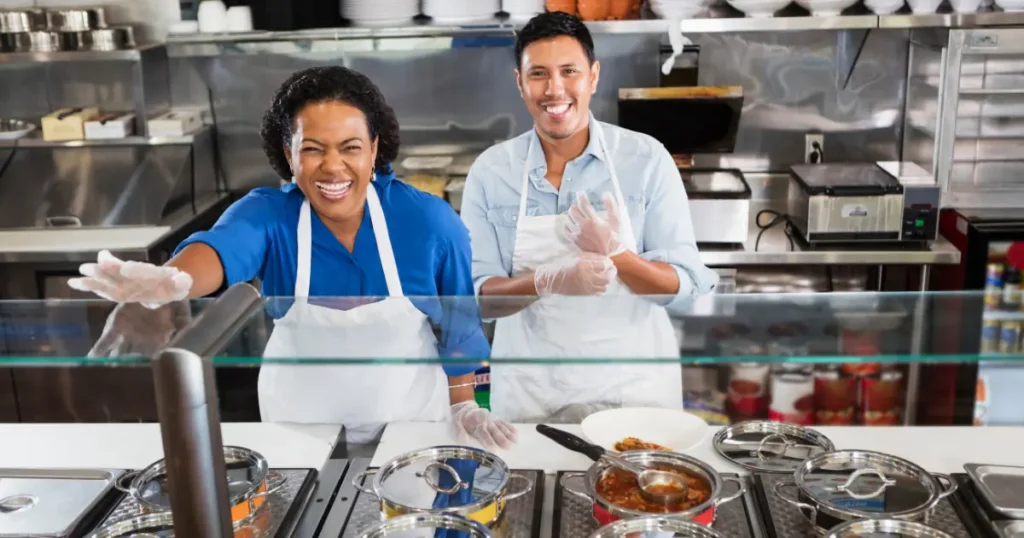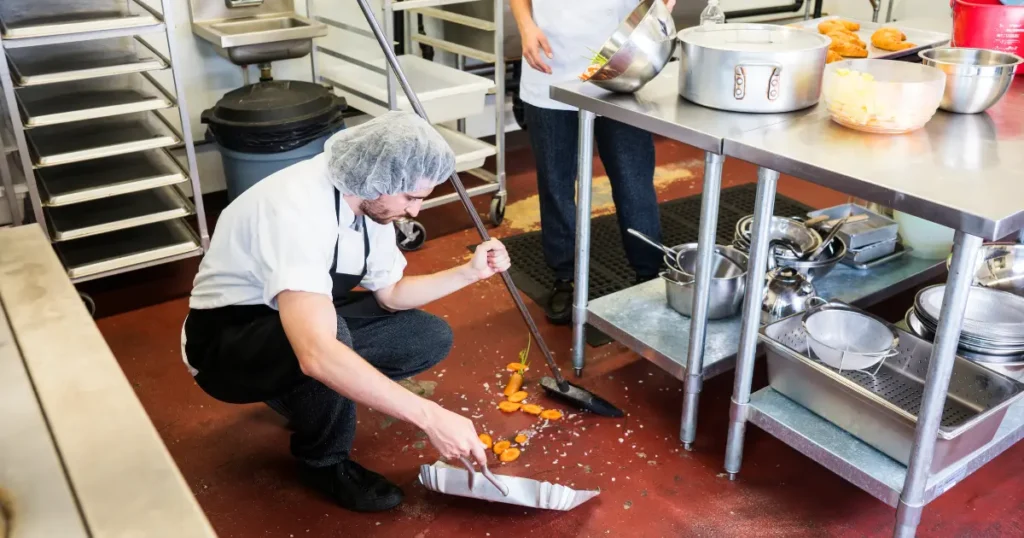The design and functionality of a kitchen play a crucial role in the success of any food and beverage establishment. In the hospitality industry, where efficiency, safety, and service quality are paramount, a poorly designed kitchen can lead to delays, wasted resources, and an overall decline in guest satisfaction. This is where the expertise of a kitchen consultant becomes invaluable. By marrying design with functionality, kitchen consultants ensure that every square foot of a kitchen is optimized for performance, safety, and sustainability. Their input not only improves operational efficiency but also impacts the overall guest experience. In this article, we will explore how kitchen consultants contribute to the hospitality sector through real-world examples that highlight the importance of their role in ensuring the intersection of design and functionality.
The Role of a Kitchen Consultant
A kitchen consultant specializes in designing, planning, and executing the layout and workflow of commercial kitchens. These professionals assess the unique needs of each establishment and provide tailored solutions to optimize space, improve workflow, select appropriate equipment, and ensure compliance with local health and safety regulations. Kitchen consultants work with chefs, architects, and hospitality managers to create kitchens that are not only aesthetically pleasing but also functional and efficient (Lee, 2017).

One of the key responsibilities of a kitchen consultant is to design kitchens that meet the specific requirements of the establishment. For example, a fast-paced restaurant will need a different layout than a fine-dining venue, while a catering service will have unique storage and preparation needs. By understanding the nuances of each business model, a kitchen consultant ensures that the kitchen is tailored to support the intended service style and volume.
Case Study 1: The Open Kitchen Concept in Fine Dining
One of the most notable trends in modern kitchen design is the open kitchen concept, which allows guests to see the chefs in action. While aesthetically appealing, open kitchens require careful planning to ensure that functionality is not compromised. A famous example is the open kitchen at Eleven Madison Park in New York City. The restaurant’s kitchen was designed in collaboration with a kitchen consultant to achieve a perfect balance between functionality and showmanship.

In this case, the kitchen needed to support both the high standards of fine dining and the visual appeal of a live cooking performance. The consultant worked with the restaurant to create a layout that minimized movement while allowing chefs to interact with guests without disrupting the flow of service. The equipment was strategically placed to allow for efficient cooking while maintaining a sleek, modern look. This design not only enhanced the dining experience but also improved kitchen efficiency by reducing unnecessary steps in the cooking process (Cousins, Foskett, & Pennington, 2016).
Case Study 2: Maximizing Space in a Small Kitchen
Another example of the importance of a kitchen consultant is found in the design of small, high-volume kitchens. Space constraints are common in urban environments where restaurants often operate in compact locations. For example, in the case of a popular tapas restaurant in Barcelona, the owners faced the challenge of running a high-demand kitchen with very limited space. A kitchen consultant was brought in to redesign the kitchen, focusing on maximizing space without sacrificing functionality.
The consultant worked with the restaurant’s management to create a space-efficient design, introducing vertical storage solutions and multi-functional equipment to make the most of the limited area. They also optimized the workflow by placing prep stations close to cooking areas, ensuring that the kitchen staff could move efficiently even in a tight space. As a result, the restaurant was able to increase its service capacity and reduce food preparation time, improving both customer satisfaction and profitability (Friedman, 2018).
Case Study 3: Sustainable Kitchens in Eco-Friendly Resorts
Sustainability is another critical aspect that kitchen consultants focus on, particularly in the hospitality industry, where eco-conscious practices are becoming increasingly important. An interesting example is found at the Six Senses Laamu Resort in the Maldives. The resort wanted a kitchen that reflected its commitment to sustainability, reducing its environmental footprint while maintaining a luxurious guest experience.

A kitchen consultant helped design a kitchen that integrated energy-efficient appliances, waste reduction systems, and water-saving devices. For example, the consultant recommended installing energy-efficient induction cooktops and refrigerators, as well as a composting system to manage food waste. Additionally, the kitchen was designed to optimize natural ventilation and lighting, reducing the need for artificial cooling and lighting during the day.
This focus on sustainability not only aligned with the resort’s environmental goals but also helped reduce operational costs. The consultant’s input resulted in a kitchen that was both eco-friendly and highly functional, allowing the resort to deliver high-quality dining experiences without compromising its commitment to sustainability (Jones, 2016).
Case Study 4: Enhancing Workflow in High-Volume Catering Kitchens
Catering kitchens, which often operate at high volumes with quick turnaround times, present unique challenges in terms of workflow and efficiency. The kitchen at the Sydney Opera House’s catering service is a prime example of how a kitchen consultant can enhance functionality in such environments.
The consultant was tasked with designing a kitchen that could handle large events while ensuring food quality and service speed. The solution involved creating distinct zones for preparation, cooking, plating, and service. The kitchen was designed with large prep areas to accommodate bulk food preparation, and high-capacity ovens and refrigeration units were installed to manage large quantities of food. Additionally, the consultant implemented a digital order management system that streamlined communication between the kitchen and service staff, ensuring that meals were delivered promptly and accurately.
As a result, the catering service was able to handle high-volume events more efficiently, reducing prep time and minimizing errors during service. This optimized workflow allowed the Opera House to cater to large groups while maintaining the quality and consistency expected of such a prestigious venue (Geerts, 2014).
The Importance of Collaboration in Hospitality Consulting
Successful kitchen design is not just about the space itself; it’s about understanding the needs of the people who use it. A kitchen consultant must collaborate closely with chefs, restaurant owners, architects, and hospitality consultants to create a kitchen that not only looks good but also works efficiently. In fact, a well-designed kitchen can enhance the guest experience, reduce operational costs, and improve staff satisfaction by making the work environment safer and more comfortable (Cousins et al., 2016).
By bringing in a kitchen consultant early in the planning process, hospitality businesses can avoid costly mistakes and ensure that their kitchen is designed to support their specific operational needs. Whether it’s a small café or a large hotel, the right kitchen design can make all the difference in the success of the business.
Conclusion
The intersection of design and functionality is where a kitchen consultant truly shines. From maximizing space in small kitchens to creating open kitchen concepts that enhance the guest experience, these consultants play a critical role in the hospitality industry. By optimizing workflow, selecting the right equipment, and incorporating sustainability into kitchen design, consultants help businesses improve efficiency, reduce costs, and provide a better experience for both staff and guests. As the demand for innovative and functional kitchen designs grows, the importance of hospitality consulting and kitchen design experts will continue to rise.
References
Cousins, J., Foskett, D., & Pennington, A. (2016). Food and Beverage Management. Goodfellow Publishers.
Friedman, M. (2018). Designing Commercial Kitchens for Efficiency and Flexibility. Wiley.
Geerts, W. (2014). Environmental certification schemes: Hotel managers’ views and perceptions. International Journal of Hospitality Management, 39, 87-96. https://doi.org/10.1016/j.ijhm.2014.02.003
Jones, P. (2016). Sustainability in food and beverage operations: A consultant’s perspective. Journal of Hospitality and Tourism Management, 29, 102-111. https://doi.org/10.1016/j.jhtm.2016.06.003
Lee, M. (2017). Optimizing kitchen workflow for safety and efficiency. International Journal of Hospitality Management, 61, 29-40. https://doi.org/10.1016/j.ijhm.2016.10.004